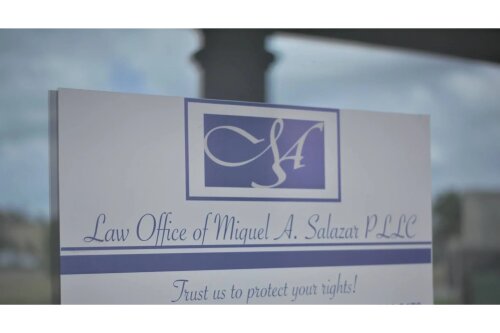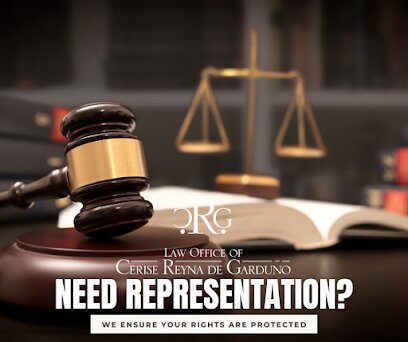Best Child Custody Lawyers in Indiana
Share your needs with us, get contacted by law firms.
Free. Takes 2 min.
Free Guide to Hiring a Family Lawyer
Or refine your search by selecting a city:
List of the best lawyers in Indiana, United States
About Child Custody Law in Indiana, United States
Child custody law in Indiana governs the legal relationship between a child and their parents or guardians during and after a separation, divorce, or when unmarried parents go to court to establish parental rights. The goal of Indiana courts is to protect the best interests of the child while ensuring that both parents have a meaningful and continuing relationship with their children, unless certain circumstances make it unsafe or impractical.
Indiana recognizes both physical and legal custody. Physical custody refers to where the child lives and who provides daily care. Legal custody involves decision-making authority over important matters such as education, health care, and religious upbringing. Custody can be awarded solely to one parent (sole custody) or shared between parents (joint custody).
Why You May Need a Lawyer
Navigating child custody disputes or arrangements can be complex and emotionally charged. Some common situations where you may need legal help include:
- Divorce proceedings involving children
- Unmarried parents seeking custody or parenting time
- Modifications of existing custody or visitation orders
- Allegations of abuse or neglect requiring supervised visitation or restriction of custody
- Parental relocation or plans to move your child out of Indiana
- Enforcement of existing custody orders
- Denial of parenting time
- Disputes over decision-making authority (legal custody)
- Interstate or international custody issues
A lawyer can explain your rights, handle court filings, represent you in court or negotiations, and assist in presenting your case in the best possible light to protect your child's interests.
Local Laws Overview
Indiana's child custody laws are found in Title 31 of the Indiana Code. Here are some key aspects to understand:
- Best Interests of the Child The court's primary concern is what is in the best interests of the child. Factors considered include the child's age and sex, the wishes of the child and parents, the child's relationship with parents, siblings, or other significant persons, the child's adjustment to home, school, and community, the mental and physical health of all involved, any history of family violence or abuse, and evidence of de facto custody stepparents.
- Types of Custody Indiana courts can award joint or sole custody, both for physical and legal custody. Joint custody means both parents share responsibilities.
- Parenting Time Non-custodial parents are usually granted parenting time, unless it is shown to endanger the child's welfare. Indiana has Parenting Time Guidelines to help structure visits.
- Modification and Relocation Parents may request modifications to custody or parenting time if a substantial change in circumstances occurs. Parents planning to move must provide notice to the other parent and the court, and the court will evaluate if the move is in the child's best interest.
- Child’s Preference The court may consider the wishes of children aged 14 or older, although the final decision rests with the court.
Frequently Asked Questions
What is the difference between physical and legal custody in Indiana?
Physical custody refers to where the child lives, while legal custody grants authority to make major decisions about the child’s upbringing, education, and healthcare.
Can both parents get custody in Indiana?
Yes. Indiana courts may award joint legal and or physical custody when it is in the best interests of the child.
What does the court consider when deciding custody?
The primary consideration is the best interests of the child, looking at factors like parental wishes, relationships, adjustment to home and school, health, and any history of abuse or violence.
Does Indiana have a preference for mothers or fathers in custody cases?
No. Indiana law does not give preference to mothers or fathers. Decisions are based on the best interests of the child without gender bias.
At what age can a child choose which parent to live with in Indiana?
The court may consider the wishes of a child at least 14 years old, but the final decision is always based on the child's best interests.
How is visitation, or parenting time, determined?
Parenting time is determined based on the Indiana Parenting Time Guidelines and the specifics of each case. Unless there are concerns for the child’s safety, both parents are usually entitled to regular time with the child.
Can a custody order be changed after it is issued?
Yes. You can request a modification if there has been a substantial change in circumstances affecting the child’s best interests.
Do I need to go to court to get custody if I am not married to the other parent?
Yes. Unmarried parents must obtain a court order to establish legal custody and parenting time.
What happens if a parent wants to move out of Indiana with the child?
Indiana law requires notice to the other parent and the court before relocation. The court will decide whether the move is in the child’s best interest and may modify custody or parenting time as needed.
What can I do if the other parent is not following the custody order?
You can file a motion with the court asking for enforcement of the custody order. The court may impose remedies or penalties if one parent refuses to comply.
Additional Resources
If you need more information or support regarding child custody in Indiana, the following organizations and resources can help:
- Indiana Legal Help Desk
- Indiana Parenting Time Guidelines (provided by the Indiana Supreme Court)
- Indiana Department of Child Services
- Indiana Child Support Bureau
- Indiana State Bar Association Lawyer Referral Service
- Local family court clerk’s offices
- Local Legal Aid Societies
These organizations can provide information about your rights, the court process, legal forms, and sometimes free or low-cost legal assistance.
Next Steps
If you need legal assistance with a child custody issue in Indiana, it is important to act promptly:
- Gather all relevant documents such as court orders, communication records, and any evidence related to your case.
- Contact a qualified Indiana family law attorney who has experience in child custody matters.
- Consult with the attorney to understand your rights, available options, and the likely court process.
- If you cannot afford an attorney, reach out to local legal aid organizations or bar association referral services for potential pro bono or low-cost counsel.
- Follow all court procedures and deadlines closely, and do not ignore formal notices or hearings.
Taking the right steps early can help protect your relationship with your child and ensure the best outcome for your family.
Lawzana helps you find the best lawyers and law firms in Indiana through a curated and pre-screened list of qualified legal professionals. Our platform offers rankings and detailed profiles of attorneys and law firms, allowing you to compare based on practice areas, including Child Custody, experience, and client feedback.
Each profile includes a description of the firm's areas of practice, client reviews, team members and partners, year of establishment, spoken languages, office locations, contact information, social media presence, and any published articles or resources. Most firms on our platform speak English and are experienced in both local and international legal matters.
Get a quote from top-rated law firms in Indiana, United States — quickly, securely, and without unnecessary hassle.
Disclaimer:
The information provided on this page is for general informational purposes only and does not constitute legal advice. While we strive to ensure the accuracy and relevance of the content, legal information may change over time, and interpretations of the law can vary. You should always consult with a qualified legal professional for advice specific to your situation.
We disclaim all liability for actions taken or not taken based on the content of this page. If you believe any information is incorrect or outdated, please contact us, and we will review and update it where appropriate.
Browse child custody law firms by city in Indiana
Refine your search by selecting a city.
















